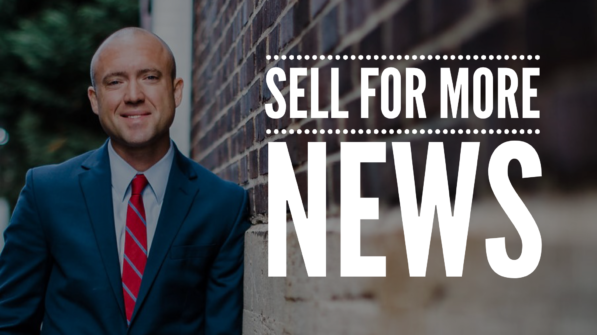Sell for More News is a weekly blog series with interesting information from the world of commercial real estate.
Stressed by the hit to business from the coronavirus pandemic, store owners and corporate bosses at Subway, Econo Lodge and other companies are bickering publicly as never before.
Companies are asking franchisees to buy equipment and adopt new safety protocols, moves they say are necessary to reassure customers during the pandemic and to grow thereafter.
Franchisees are pushing back on store upgrades, promotional discounts and fees they say are excessive and undermine their profits. Some are agitating to replace executives or suing to change practices.
Subway
“I get that franchising isn’t a democracy, but at the same time, it’s not a dictatorship,” said Keith Miller, who was among Subway franchisees resisting when the company asked operators during the summer to offer two foot-long sandwiches for $10, a price they said was unprofitable.
Subway said it communicates with franchisees daily and has allowed them to defer or skip royalty payments during the pandemic. It ultimately reduced the foot-long-sub promotion to online only.
There has always been push and pull between franchisers…the corporations that own a brand, handle its strategy and set its standards…and the franchisees who own and operate the stores, hire the employees and deal with customers. An older approach that assumed both sides would pull in the same direction is giving way to a more combative model in which store owners increasingly fight corporate decisions they deem unfair.
Econo Lodge
A group of Econo Lodge franchisees and operators of other lodging brands owned by Choice Hotels International Inc. said they were forced to pay $34.50 for 10 pounds of frozen sausage links that cost $22.37 elsewhere. In a lawsuit in federal court, these franchisees allege this was part of a “pay-to-play” supplier program that requires vendors to make payments to Choice Hotels, the cost of which is passed on to franchisees.
Choice Hotels denied the allegations in Econo Lodge operators’ suit and said it has worked closely with franchisees to provide aid during the pandemic.
Franchisees organize
In recent years, franchisees have formed their own organizations to more forcefully press their case with management teams, raising the possibility that issues that would have been ironed out privately in the past will spill into public view.
Franchisees run 55% of American hotels. They operate 84% of U.S. chain restaurants. The roughly 774,000 franchised establishments in the U.S. employed about 8.4 million people last year.
One franchise-led chain attributed the tensions partly to the pandemic, which has led to the temporary or permanent closing of about 33,000 franchise outlets. “Franchisee relations are 100% correlated with how things are going,” said Chief Executive Steve Joyce of the Applebee’s and IHOP restaurant brands.
Many franchisees are small businesses and received government support during the pandemic. A May survey found that 96% of 190 franchise owners polled had received federal aid under the Paycheck Protection Program.
How franchising works
Franchisees pay brand owners tens of thousands of dollars, and spend significant additional amounts in some cases, for the right to open a franchised business. They sign multiyear contracts that spell out royalties or other money owed to the franchiser, such as a percentage of gross revenue, and agree to maintain the brand’s standards. Franchisees also agree to pay various fees and typically contribute to marketing funds the brand uses to buy national ads.
In return, franchisees gain access to customers who trust the brand, plus training in how to operate profitably. The brand owner often sells the franchisees supplies and services at prices it sets. These sales and franchisers’ fees have both become points of contention in some franchise deals.
Franchisors push back
Franchisees who have formed organizations in recent years to increase their leverage include lodging operators, owners of McDonald’s restaurants, operators of Massage Envy studios and franchisees of Edible Arrangements LLC fruit-basket and flower shops.
Some executives say franchisee complaints are shortsighted. Operators shouldn’t expect business to improve just because they joined a franchised system, said Rajiv Trivedi, a former La Quinta executive. “Many times, franchisees’ expectations are unreasonable,” he said.
(FREE PROMOTION) Find out how much your property is worth, for free, before you list it for sale. Get the blueprint to sell your property for the highest price the market will pay (click here)
How to get an unfair advantage. Click here to join Sell for More Club today.
Own a business? 90% of business owners don’t know the market value of their business. If you’re considering selling a business, click here for a free business valuation.
About Beau Beach, MBA CCIM
Beau is a tenacious Commercial Real Estate Broker, author and adoring father of four. His clients appreciate his no-nonsense demeanor and his legendary work ethic.
Beau leads Beachwood which is a commercial real estate broker for sellers in the Nashville, Milwaukee and South Florida markets.
He’s the author of the books The 3 Reasons: Why Most Commercial Properties Don’t Sell and True Wealth: What Every Seller Should Know About 1031 Exchanges.
Beau can be reached at 800-721-3287, click to schedule a call or Beau@soldbybeachwood.com
